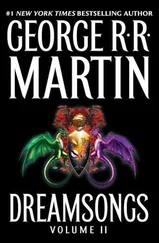Biantha held silence before her like a skein of threads that wanted words to untangle it.
He lifted a hand, hesitated, let it drop. “I wanted to talk to you once, if never again. Before I go to Silverbridge where the demons await.”
She smiled at him, then. But always the suspicion remained that he had some way of breaking his oath to Vathré, that the demon emperor had sent him to ensure the Watchlands’ downfall through some subtle plan — or, more simply, that he had come to betray the mother he had abandoned, who had abandoned him; she no longer knew which.
“Go, then,” said Biantha, neither promise nor peril in her voice, and left him to await dawn alone.
Four days later, Biantha stood before her bookcase, eyes roaming aimlessly over her collection of mathemagical works, some in the tight, angular script of the demon empire, others in the ornate writing common to the Watchlands’ scholars. There has to be something useful, she told herself, even after having scoured everything that looked remotely relevant. Now, more than ever, she wished she had talent for another of the magical disciplines, which did not rely on memorized proofs or the vagaries of inspiration, though none of them had ever seemed to get far with the Prophecy.
Would that it were a straightforward problem—
Biantha froze. The Prophecy did not describe the idealized spaces with which she had grown accustomed to dealing, but the tangles of truth, the interactions of demons and humans, the snarls of cause and effect and relation. Even the astrologer admitted privately that his predictions, on occasion, failed spectacularly where people were involved. She had been trying to linearize the cantos: the wrong approach.
Evergard’s treasurer had once teased her about the cost of paper, though she took care to waste as little as possible. She located a pile of empty sheets in a drawer and set them on her desk, opening her copy of the Prophecy to the first page. After a moment, Biantha also retrieved Sarielle’s Speculations, Spells and Stranger Sets , sparing a glance for the 400-line poem in the back; Sarielle of Rix had fancied herself a poet. She had passed evenings lingering over the book’s carefully engraved figures and diagrams, curves that Sarielle had labeled “pathological” for their peculiarities.
Symmetry. That which remained changeless. Red pieces upon black and black upon black at the start of a draughts match. A ballad that began and ended with the same sequence of measures; and now that Biantha turned her thoughts in this direction, she remembered a song that traveling minstrels had performed before the court, voice after voice braiding into a whole that imitated each part. Her image in the mirror. And now, Sarielle’s pathological curves, where a segment of the proper proportion spawned yet more such segments.
Methodically, she went through the Prophecy, searching for these other symmetries, for the solution that had eluded her for so long. Late into the night, throat parched because she had drained her pitcher and dared not break her concentration by fetching another or calling a servant, Biantha placed Speculations, Spells and Stranger Sets to one side and thumbed through the appendix to Athique’s Infinities . Athique and Sarielle, contemporaries, had been opposites as far as titles went. She reached the approximations of various shapes, sieves and flowers, ferns and laces, that no mortal hand could craft.
One page in particular struck her: shapes built from varying polygons with various “pathologies,” as Athique dubbed them in what Biantha suspected had been a jab at Sarielle’s would-be wordsmithing, repeating a procedure to the borders of infinity. The Prophecy harbored greater complexities, but she wondered if her solution might be one of many algorithms, many possibilities. Her eyes flooded: a lifetime’s work that she had uncovered, explored briefly by mathemagicians before her, and she had little time in which to seek a solution that helped the Watchlands.
Even after she had snuffled the lamp and curled into bed, a headache devouring her brain, words still burned before her eyes: Symmetry. Pathologies. Infinity.
Only a few weeks later, Biantha found herself walking aimlessly down a corridor, freeing her mind from the Prophecy’s tyrannous grip, when Lady Iastre shook her shoulder. “They’re back, Biantha,” she said hurriedly. “I thought you’d like to be there to greet them.”
“Who’s back?”
“Your son. And those who survived Silverbridge.”
Those who survived. Biantha closed her eyes, shaking. “If only the demons would leave us alone—”
The other woman nodded sadly. “But it’s not happening. The emperor will soon be at Evergard itself, is the news I’ve been hearing. Come on.”
“I can’t,” she said, and felt as though the keep were spinning around her while pitiless eyes peered through the walls. “Tell him — tell Marten — I’m glad he’s back.” It was all she could think to say, a message for her son — a message that she would not deliver in person, because the urgency of the situation had jarred her thoughts back to the Prophecy.
“Biantha!” Iastre cried, too late to stop her.
In bits and pieces she learned the rest of the story, by eavesdropping benignly on dinner conversations and the servants’ gossip. The emperor had indeed forsaken his court for the battlefield, perhaps because of Evergard’s stubborn resistance. None of this surprised her, except when a curly-haired herald mentioned the serpent-eyed scepter. To her knowledge that scepter had never left the empire — unless, and the thought sickened her, the demons had begun to consider Evergard part of their empire. It had turned Silverbridge, the shining bridge of ballad, into rust and tarnish, and even now the demons advanced.
Vathré gave a few permission to flee further east with their families, those whose presence mattered little to the coming siege. Others prepared to fight, or die, or both; the mock-battles that Biantha sometimes watched between the guards grew more grim, more intent. She and Iastre agreed that the time for draughts and rithmomachia had passed, as much as she would have welcomed the distraction.
As for Marten — she saw almost nothing of him except the terrible weariness that had taken up residence in his face, as though he had survived a torture past bearing. Biantha grieved for him as a mother; as a mathemagician, she had no comfort to offer, for her own helplessness threatened to overwhelm her. Perhaps he in his turn sensed this, and left her alone.
Day by day the demons came closer, to the point where she could stand on the battlements and see the baleful lights in the distance: the orange of campfires, the gold and silver of magefires. Day by day the discussions grew more frantic, more resigned.
At last, one morning, the horns blazed high and clear through the air, and the siege of Evergard began. Biantha took her place on the parapets without saying any farewells, though some had been said to her, and watched while archers fired into the demons’ massed ranks. Not long after, magefire rolled over their hastily raised shields, and she prepared her own spells. Only when the demons began to draw back and prepare a second attack did she call upon powers that required meticulous proofs, held in her mind like the memory of a favorite song — or a child in her arms.
She gathered all the shapes of pain that afflicted the demons and twisted them into death. Red mists obscured her vision as the spell wrenched her own soul, sparing her the need to watch the enemy falling. Yet she would have to use the spell again and again before the demons’ mathemagicians shaped a ward against it. Those who shared her art rarely ventured into battle, for this reason: it often took too long to create attacks or adapt to them. A theorem needed for a spell might take years to discover, or turn out to be impossible; and inspiration, while swift, was sometimes unreliable. She had seen mathemagicians die from careless assumptions in spellcasting.
Читать дальше












